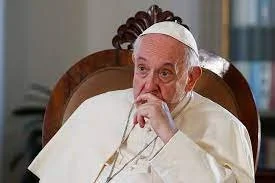In 1996, Christian leader Lynn Green walked with some apprehension into a mosque in Cologne, Germany. He was leading a group of 125 Christians intent on retracing, all the way to Jerusalem, one of the routes of the 13th-century Crusades, making a formal apology to Muslims along the way for the suffering their forebears endured at the hands of the Crusaders.
As Green stood before the 200 or so worshipers, he and his cohort asked in German, Turkish and English for the forgiveness of those present and those they represented. They had no idea how their apology would be received. The response was thunderous applause, and the imam (mosque leader) replied, "When I heard the nature of your message, I was astonished and filled with hope."
The imam then went on to send copies of this message of reconciliation to all 600 mosques in Europe at the time. In a later conversation he told Green that Muslims had begun examining the wrongs they had committed against Christians but were unsure what course of action to take. This 2000-mile "Reconciliation Walk" led by Lynn Green provided them with an example to follow.
You may have heard in the news that Pope Francis is planning a visit to Alberta and Québec this week to make a similar apology. He is going to apologize to the indigenous communities in Canada for the abuse they suffered at the hands of the Catholic church in the form of residential schools, where over 150,000 indigenous children were taken from their homes until 1996 in an effort to "assimilate" them into mainstream culture -- at the cost of their cultural identity, language, and often even their physical and sexual well-being.
The pontiff is calling the trip a "pilgrimage of penance". It follows the visit of a delegation of the three largest indigenous groups in Canada to the Vatican this past March to appeal for an official apology.
While many of us consider this to be an important if long overdue gesture, some young indigenous Canadians are skeptical. They're not convinced that words can undo the damage done to their parents and grandparents.
So what do you think? How far can even the most sincere apology go toward repairing damage that has been done across generations and centuries?
I certainly don't have the answer, but I think the imam from Cologne has at least one thing right:
"There has to be a willingness to forgive."
As always, I'd love to hear your thoughts. Just share them below.
